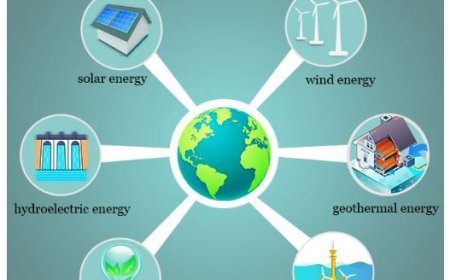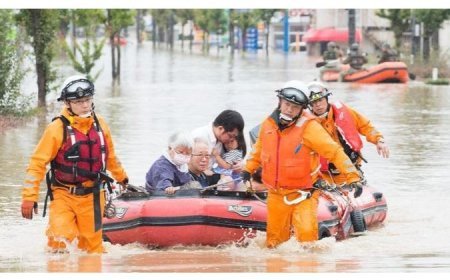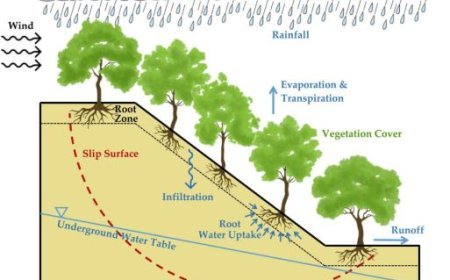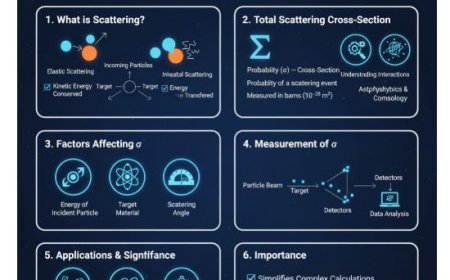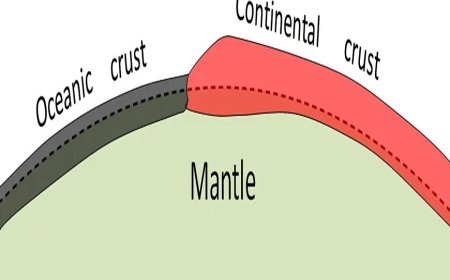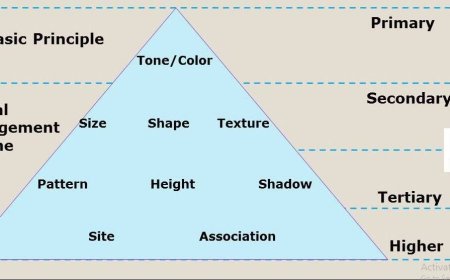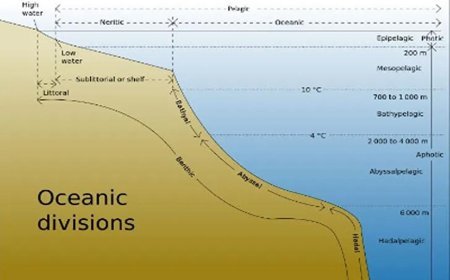OCEAN POLLUTION
Land & sea - a polluted connection: Geological processes contribute to ocean pollution, harming marine life.
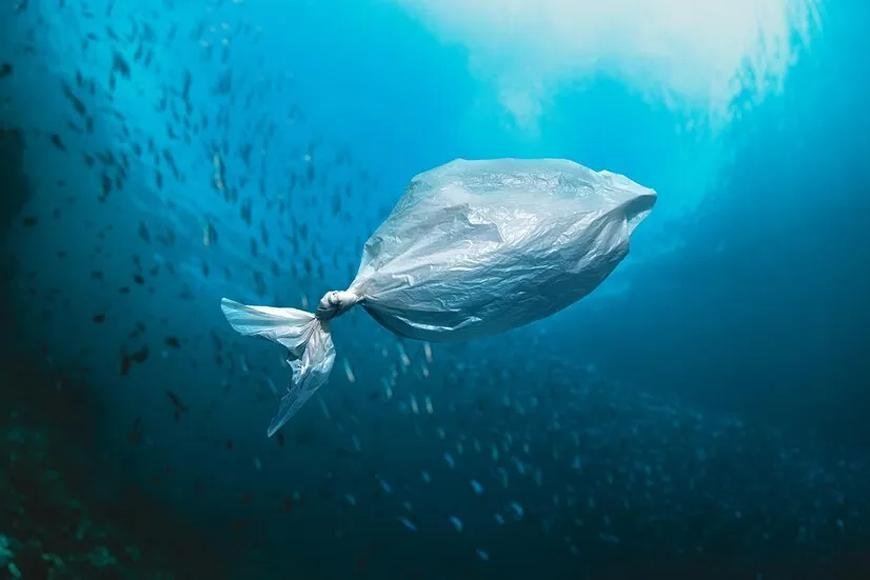
- Ocean pollution is a major environmental concern that threatens the health and well-being of our planet.
- Oceans cover 70% of the Earth's surface and play an important role in the health of our ecosystem, including land-dwelling creatures like us.
- Every year, billions of pounds of garbage and other pollutants enter our seas, according to the National Oceanic and Atmospheric Administration (NOAA).
- Ocean pollution has far-reaching repercussions; it is now linked to bad health outcomes in human health and marine ecosystems.
Ocean pollution
- Ocean pollution, often known as marine pollution, is a combination of chemical contamination and waste.
- Ocean pollution happens when chemicals and rubbish are washed, blown, or deliberately placed into the ocean.
Causes
- There are several sources of ocean pollution, but the majority (80%) originates on land and is caused by people.
Some of the primary sources of marine pollution are as follows:
1. Nonpoint-source pollution (runoff)
- Nonpoint-source pollution is the buildup of pollutants from small, untraceable sources.
- Individual automobiles, boats, farms, and building sites are all examples of pollution.
- Nonpoint-source pollution usually ends up in the ocean as runoff, which happens when rain or snow transports contaminants from the ground to the sea.
- For example, after a strong downpour, water rushes off roadways into the ocean, carrying oil from automobiles parked on the streets with it.
- However, wind may transport grit and other debris from nonpoint sources and deposit it on the ocean's surface.
2. Intentional discharge
- Many manufacturing factories across the world discharge harmful waste into the water, including mercury.
- While it is illegal in the United States, sewage contributes to ocean contamination. Meanwhile, plastic trash is a particularly difficult task; the Ocean Conservancy estimates that eight million metric tons of plastic enter our waters each year.
3. Oil spills
- Ships contribute significantly to maritime pollution, particularly when crude oil spills occur.
- Crude oil lingers in the ocean for years and is difficult to clean up.
- The greatest in recent history, by far, was the Deepwater Horizon well rupture in the Gulf of Mexico in 2010, which spilled around 134 million gallons of oil into the ocean.
4. Littering
- Littering is a common cause of atmospheric pollution, which is a sort of ocean pollution caused by things blown by the wind into the ocean.
- Single-use plastics (such as plastic bags) and styrofoam containers, which can take hundreds of years to biodegrade, are examples.
- It is estimated that over 1 trillion plastic bags are used globally each year.
5. Ocean mining
- Deep-sea ocean mining pollutes the ocean and disrupts ecosystems at the deepest levels. Drilling for cobalt, zinc, silver, gold, and copper deposits toxic sulfur deposits deep in the ocean.
Ocean pollution's consequences
- Ocean pollution has a wide range of impacts that affect both marine life and people.
The following are some of the most prevalent consequences of ocean pollution:
Harmful to aquatic organisms
- Ocean pollution frequently kills sea creatures.
- Oil spills, for example, can entrap and drown marine creatures by penetrating their gills.
- When oil seeps into the feathers of seabirds, they may be unable to fly or feed their young.
- Animals not killed by crude oil may develop cancer, change their behavior, and lose the ability to reproduce.
- Marine animals frequently mistake small plastic trash for food and become entangled in plastic bags and abandoned fishing nets, or even die as a result.
- Dolphins, fish, sharks, turtles, seagulls, and crabs are among the animals most vulnerable to injury from plastic garbage in the water.
Depletion of oxygen in seawater
- As extra debris in the water degrades over time, it consumes oxygen, resulting in less oxygen in the ocean.
- Water species such as penguins, dolphins, whales, and sharks die due to low oxygen levels in the water.
- Excess nitrogen and phosphorus in saltwater deplete oxygen.
- When a region of the ocean has significant oxygen deprivation, it might create a dead zone, where very little marine life can survive.
3. A threat to human health
- Pollutants in the water eventually find their way back to us.
- Small creatures consume toxins, which larger predators then eat, many of which are seafood that we later consume.
- Toxins deposited in human tissue from infected animals can cause long-term health problems, cancer, and birth deformities.
- Phytoplankton, for example, will absorb methyl mercury (mercury transformed by bacteria and delivered to the ocean's surface). This is passed up the food chain as zooplankton eat phytoplankton, tiny fish eat zooplankton, and bigger fish consume the smaller fish.
- By the time you get to swordfish size, they can have a very high mercury load (in fact, swordfish have one of the highest mercury loads).
What's Your Reaction?









